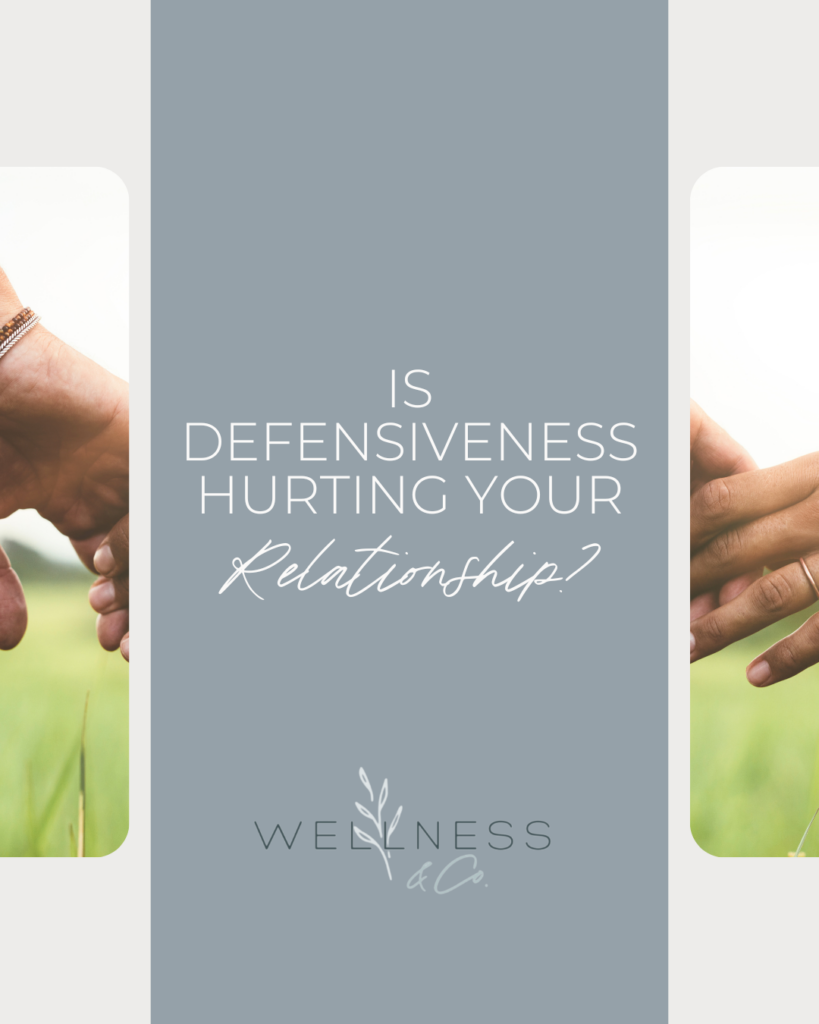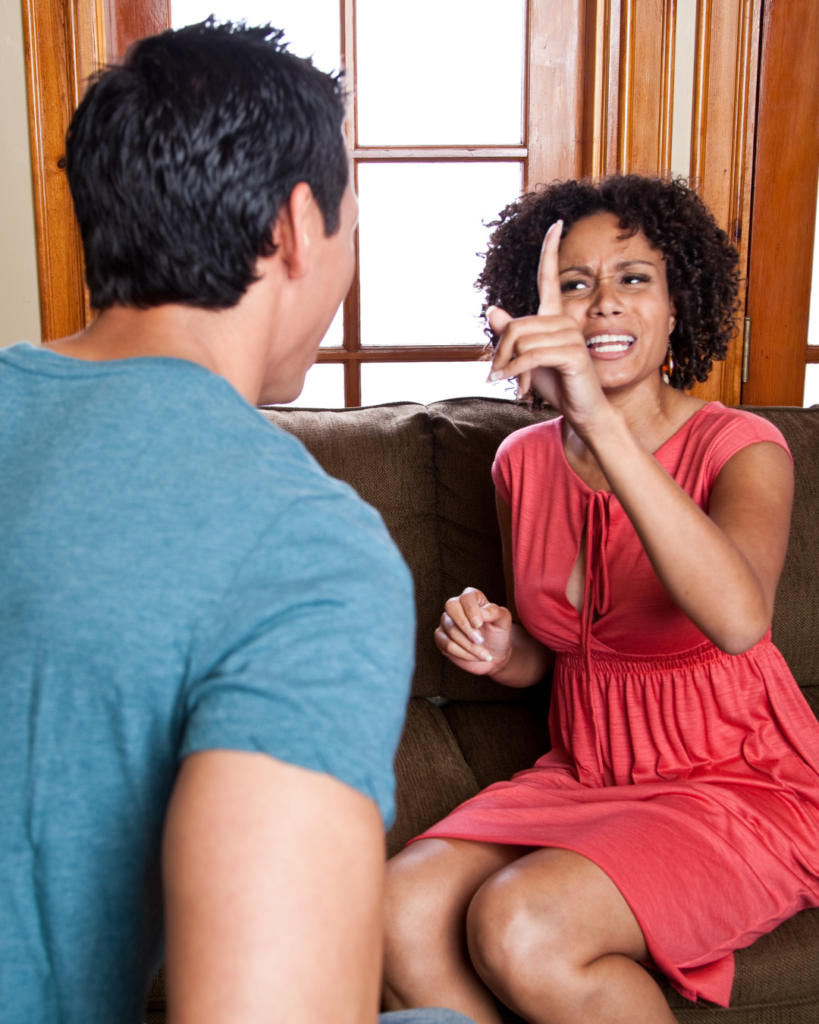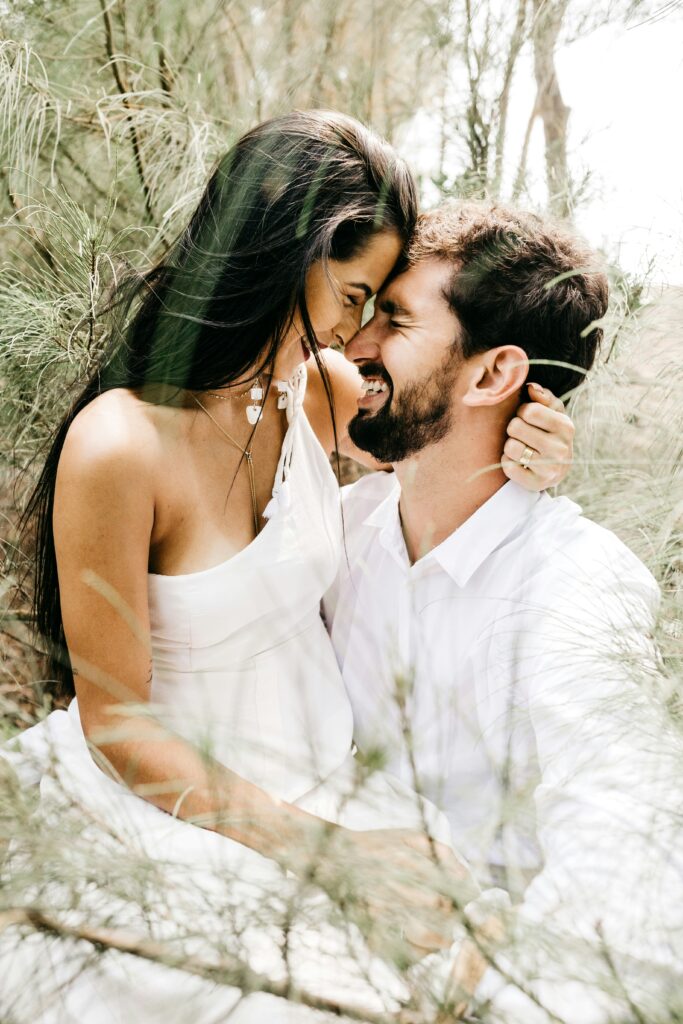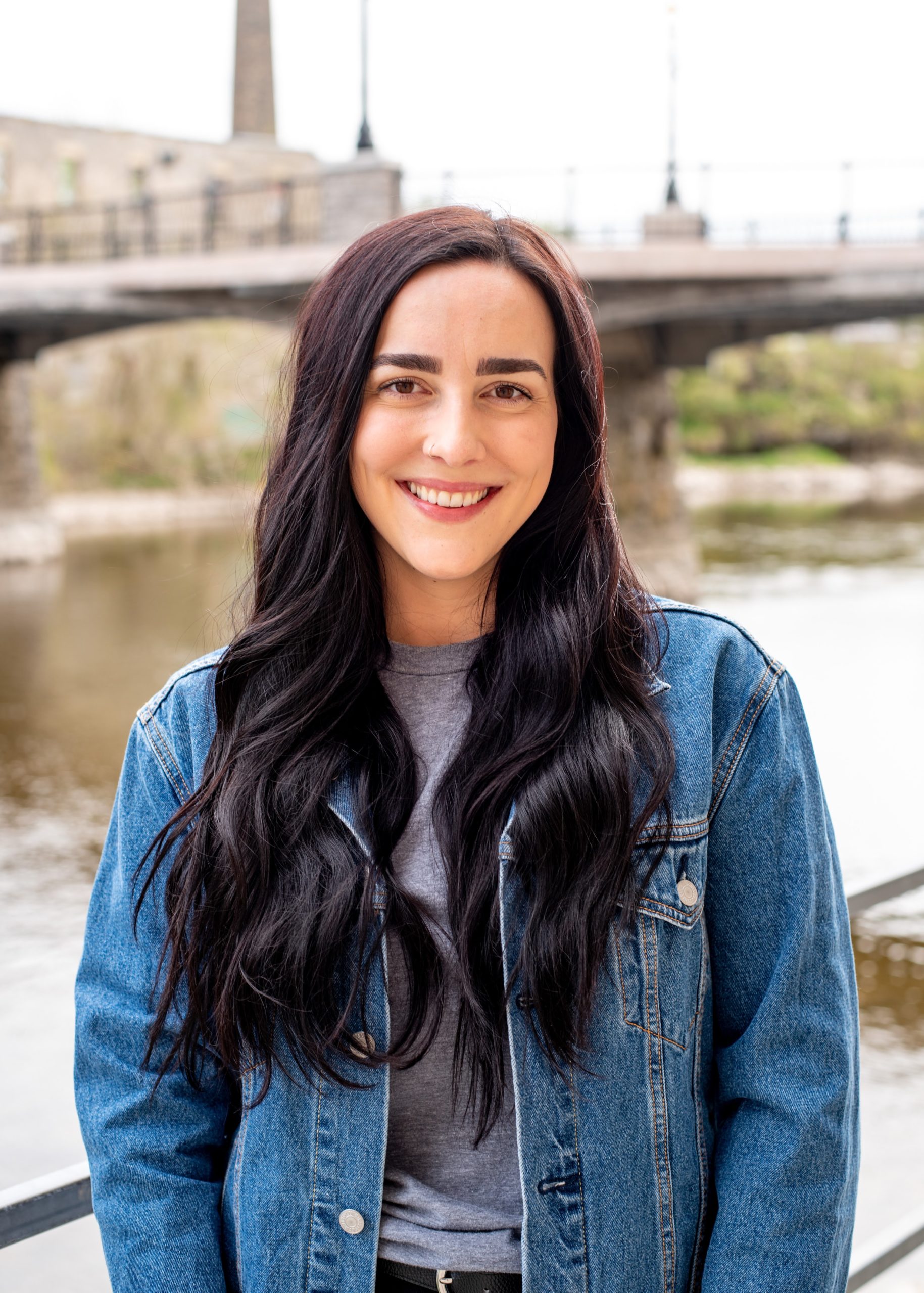Follow
Wellness & Co.
Hi, I'm Dr. K, Wellness & Co. is a growing therapy/coaching practice and educational hub for prospective clients based in Maryland and virtual clients all over the world!
Hi, I'm Dr. K
free guide
e -books
e -course
Is Defensiveness Hurting Your Relationship?
June 4, 2024
By Amanda Clegg, Relationship Coach, CLC, MNLP
READING TIME: 3 MINUTES

Defensiveness is a common challenge in relationships, which acts as a barrier to open communication and genuine connection. It arises from a place of self-protection, but it can lead to misunderstandings, resentment, and a breakdown in intimacy.
And, if I may be so *lovingly* blunt…it can be a relationship killer if we don’t address it and learn how to be a safe partner.
Understanding Defensiveness
Defensiveness is a reaction to perceived criticism or threat that stems from shame, sadness, hurt, or anger. It manifests in various ways: deflecting blame, justifying actions, counterattacking, or shutting down emotionally. While it may temporarily shield us, it ultimately prevents productive dialogue and resolution of conflicts.

Why Do We Get Defensive?
- Fear of Rejection: At its core, defensiveness is often driven by a fear of rejection or not being good enough. When someone feels criticized, they may instinctively defend themselves to avoid feeling unworthy or unloved.
- Past Experiences: Negative past experiences, such as childhood criticism or previous relationship betrayals, can contribute to a heightened sensitivity to criticism.
- Low Self-Esteem: Individuals with low self-esteem may be more prone to defensiveness as they struggle to accept themselves and are more likely to perceive comments as attacks.
- Enneagram Type: Yeppp – EVERY type can get defensive and the path of growth looks different for each of them. Don’t know your type? Schedule a typing interview with me here!
The Impact on Relationships
When defensiveness becomes a habitual response, it can create a toxic cycle in relationships. Partners may feel unheard and invalidated, leading to escalating conflicts and emotional distance. Over time, this can erode trust and intimacy, making it difficult for the relationship to thrive.
Strategies to Overcome Defensiveness
- Self-Awareness: Recognize when you are being defensive. Pay attention to your physical and emotional reactions during conversations. Awareness is the first step toward change (but awareness alone doesn’t create change!).
- Pause and Reflect: When you feel defensive, take a moment to breathe and go within before responding. This pause can help you respond more thoughtfully rather than react impulsively.
- Empathy: Try to understand your partner’s perspective. Empathy can defuse defensiveness and make space for a more compassionate response. Check out this short video of the difference between empathy and sympathy!
- Own Your Feelings: Use “I” statements to express your feelings without blaming your partner. For example, say “I feel hurt when…” instead of “You always…”
- Seek Clarification: If you feel criticized, ask for clarification rather than assuming the worst. Often, misunderstandings arise from miscommunication. Honestly, remember that childhood game ‘telephone’? That’s what we’re playing as adults!
- Coaching or Therapy: This can provide valuable tools and insights to manage defensiveness and improve communication skills.
Building a Culture of Openness
Creating a relationship environment where both partners feel safe and valued is crucial. Here are some tips to foster openness:
- Positive Reinforcement: Acknowledge and appreciate each other’s efforts and positive qualities. Regular affirmations can build a strong foundation of trust.
- Active Listening: Truly listen to your partner without interrupting. Show that you value their perspective by summarizing what they’ve said before responding.
- Vulnerability: Share your own vulnerabilities and encourage your partner to do the same. Vulnerability can strengthen bonds and promote mutual understanding.
Regular Check-Ins: Make time for regular conversations about your relationship. Addressing issues proactively can prevent the buildup of resentment and defensiveness.

While defensiveness is a common response, overcoming it is essential for healthy relationships. By understanding its roots and implementing strategies to manage it, couples can break the cycle of defensiveness and build stronger, more fulfilling connections. Remember, the goal is not to be perfect but to create a relationship where both partners feel heard, valued, and loved. Embrace the journey toward greater empathy and openness, and watch your relationship flourish.
Big love,
Amanda
Amanda helps teens, individuals, and couples create secure relationships within themselves and with each other. Her favorite (and most impactful!) tool to use is the Enneagram, which deepens awareness, understanding, and compassion so that we all can continue to foster meaningful connections in our day to day lives, moment by moment.
Leave a Reply Cancel reply
CONTACT
Start Here
BLOG
OUR TEAM
SHOP
ABOUT
©2025 Wellness & Co. | All Rights Reserved | Design by EverMint Design Studio
BACK TO TOP
connect with us on instagram
